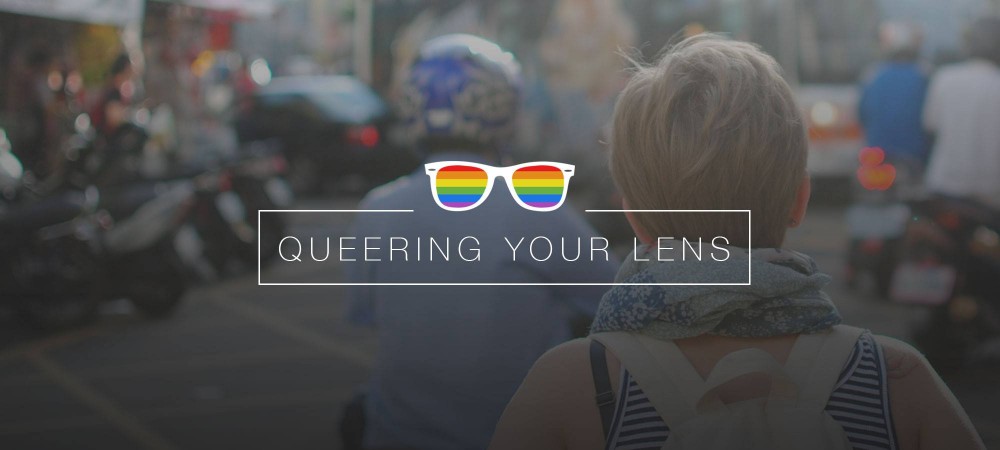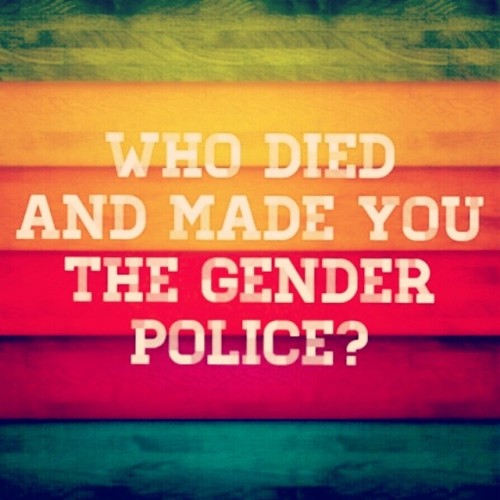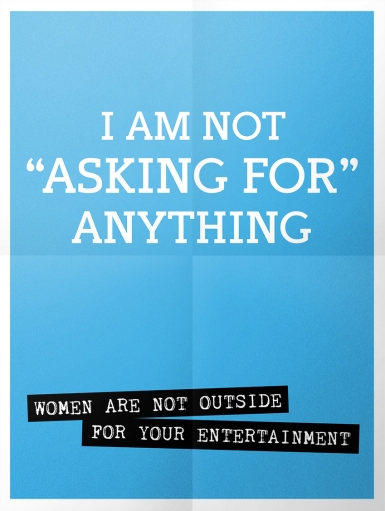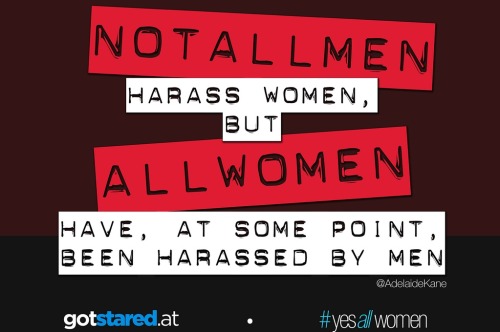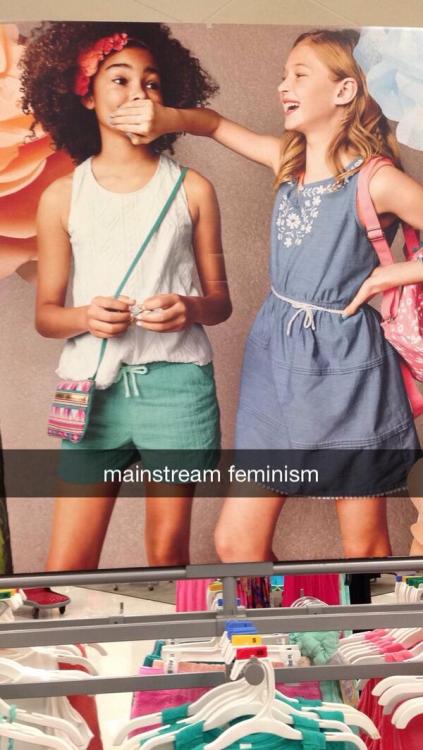Two years ago I finally decided to identify as bisexual out loud.
Finding a label that helped me understand my sexual orientation was both exciting and scary. It was exciting because I felt a lot more at peace with my internal struggle of understanding who I am, as I have always been deeply in touch with my sexuality and feelings. It was scary, though, because I had to deal with my own internalised biphobia, social expectations and, well, the judgemental people and voices in my head.
Since then, I have talked more openly about my bisexuality with my partner, friends, family and my feminist online community. And with this – and a whole lot of reading – I’ve found myself tired of hearing the accusation that bisexual individuals are cissexists because they supposedly reinforce the gender binary.
Drawing from Julia Serano‘s wonderful insights in her latest book Excluded: Making Feminist and Queer Movements More Inclusive and Shiri Eisner’s amazing blog Radical Bi, I will explain the importance of the label bisexual, as opposed to “more inclusive terms” such as pansexual or omnisexual, within the queer movement because of the uniqueness of our struggle against monosexism and bi-erasure.
Before we continue, I’d like to clarify that I am not against people identifying with the labels BMNOPPQ (bisexual, multisexual, no label, omnisexual, pansexual, polysexual, queer). Everyone has the right to identify as they want. I am just advocating for the use of bisexual* as an umbrella term to create a strong bisexual* community against our unique struggles.
Bisexual and transgender with the asterisk (*) at the end signify umbrella terms.
Is Bisexuality Cissexist? Or Is Pansexuality Biphobic?
There are many different definitions of the word bisexual. These definitions vary from person to person and their individual experiences. However, the traditional definition of bisexual denotes a person that feels sexual and/or romantic attraction to people of both the same and different genders. So, there is the implication of being only two genders by using ‘attraction towards both genders’.Other traditional definitions replace ‘same and different genders’ with men and women, making it more explicit. These definitions are assumed to reinforce the gender binary and; as a result, are accused of being cissexist.
But, there are other definitions of bisexuality that are gaining momentum. Julia Serano defines bisexual in her book as “people who do not limit their sexual experiences to members of a single sex or gender”. What is the dichotomy being used in here? She makes the case that being heterosexual, gay or lesbian reinforces the gender binary just as much as the traditional definition of bisexual since they are exclusively attracted to the opposite or the same genders. Same/Opposite dichotomy, anyone? And they are not even using the words men and/or women!
The Bisexual Index enlightens us by saying that the definition of heterosexual, gay and lesbian have changed over time because now people recognise the existence of more than two genders. For this reason, heterosexual, gay and lesbian are now defined as people that feel sexual and/or romantic attraction to people of a broadly different or similar gender, respectively. Gender is a norm and so, it kind of exists like a rigid box (take, for example, men and women), but actually, no gender performance (for lack of a better word) is ever the same. Your gender, my gender, his, her, zie gender might be similar in expression, but they are all unique!
The Bisexual Index defines bisexual as the possibility for romantic and/or sexual attraction for people of more than one gender.
But regardless of these definitions that acknowledge all genders, there are individuals that advocate for the complete elimination of the word bisexual for its ‘inherent’ cissexism. Some individuals who claim that bisexual is only about attraction towards men and women, may choose to identify as pansexual, queer or less popular labels like omnisexual, polysexual, multisexual or no label at all.
The word pansexual denotes a person that can feel romantic and/or sexual attraction towards people of all gender identities and expressions. Or as it is often described, a pansexual individual feels romantic and/or sexual attraction towards people, regardless of their gender identity and expression.
So, speaking from my point of view, the two are very similar. In fact, a lot of people use them interchangeably. If so, why do people keep fighting over the use of these terms? Is it to find who is the queerest of us all?!
While there are many similarities between bisexual and pansexual (and not just the fact that we feel attraction towards more than one gender), there is one crucial difference that provides the answer to the question asked above.
Activist Shiri Eisner explains in this blog post and Julia Serano explains in her book that bisexuality focuses on sexual identity while pansexuality focuses on gender identity and expression. This means that those two different identity labels are concerned with different oppressive binary structures: bisexual is concerned with the hetero/homo dichotomy that reproduces monosexism (we’ll get to that in a bit!) and pansexual is concerned with the sex/gender binary that reproduces cissexism.
So, basically, when a person identifies as pansexual, they prioritise ending the oppression – in the form of cissexism and transphobia – that their possible partners might suffer because of their gender identity and expression. This means they are actively seeking to undermine the assumption that what’s between your legs determines if you feel like a man or woman (a.k.a. the sex/gender binary). In short, pansexual individuals focus on making explicit their attraction towards trans* and genderqueer people to end transphobia.
But when a person identifies as bisexual, they prioritise ending the oppression they face – in the form of monosexism and biphobia – by feeling attraction towards more than one gender. In a society that has conditioned us to think that people can only be attracted to the same or different gender (gay/straight), claiming a bisexual* identity is both revolutionary and radical since we are proving that we exist and that we are not invisible since our sexual orientations are always defined depending on who we are fucking. It is an act that aims to destroy monosexism and bisexual invisibility (if you aren’t sure of what these two mean, click here for my blog post about it!).
With this, I am not saying that bisexuals are fighting a different fight than pansexuals. Indeed, we have the same goal towards liberation. But just as much as there is transphobia within bisexual circles (sadly!!), there is biphobia in pansexual circles (also, very sad!). This is because of the fact that, regardless of the history behind the bisexual movement and our unique struggle against monosexism and bi-erasure, pansexual individuals choose to identify as such because they don’t want to reinforce the gender binary (and as we saw, bisexual individuals do not reinforce the gender binary any more than heterosexual, gay, lesbians and some trans* people supposedly do). That seems pretty biphobic to me. And frankly, it sounds like the start of the Queer Olympics.
Julia Serano quotes Shiri Eisner’s work in her book because both of them are two bisexual academics in the trans* spectrum that demand the bisexual* community to prioritise undermining their unique struggle against the hetero/homo binary and not the sex/gender one as this contributes to bisexual erasure. Shiri Eisner’s quote is as follows:
“A discussion focusing around bisexuality solely in relation to transgender politics performs structural bisexual erasure, as it prioritises transgender politics over bisexual politics in a discussion about bisexual identity”
For this reason, independently of how people choose to identify within the bisexual* umbrella of BMNOPPQ, it is important to retain the bisexual* umbrella term to fight against monosexism and biphobia.
Regardless of the fact that many bisexual individuals (and other individuals within the queer and trans* community) want to reduce the meaning of bisexuality to that of attraction towards men and women, aiming to reinforce the gender binary, we need to remember that only we get to define what bisexual means (hopefully in the most inclusive light). As Julia Serano beautifully explains, bisexual is our word: “[it] is about our experiences with sexuality and sexuality-based oppression, and it makes no claims whatsoever about what other people are, or how they should be sexual or gendered”.
We can’t pretend that the long history behind the word bisexual, as it is the first word bisexual* individuals used to fight for their inclusion within the queer community and their struggle for liberation. We can’t ignore the fact that the word bisexual is the most familiar term for everyone to understand BMNOPPQ identities and that creating new words to describe biphobia, bi-invisibility, bi-erasure, monosexism and so on would be problematic and would only further our invisibility within both straight and queer communities.
We shouldn’t abandon the bisexual* umbrella term because this would undermine any efforts made to create a bisexual community. Sadly, this bisexual community is not as strong, so creating new words would only weaken any attempt at forming it. I advocate for the creation of a bisexual* community to hold each other accountable, share and fight for our struggle and to move away from always trying to assimilate and navigate between gay, lesbian and straight circles.
I want to remind that this post is not about belittling people within the bisexual* umbrella that choose to identify with any BMNOPPQ terminology; on the contrary, I fully support every individual’s right to self-determination. But I am encouraging us to hold on to the bisexual* umbrella term for political reasons. I did want to bring to light the problems of a weak bisexual community, the biphobia and transphobia within the community and debunk the myth that bisexuality reinforces the gender binary.
If you have any thoughts, don’t hesitate to leave them in the comment section below 🙂
